- Home
- Scott Turow
One L Page 5
One L Read online
Page 5
“That’s what he said,” the man insisted. “I heard him say so.” Karen confirmed that.
Nazzario came up then and I had the man tell Terry what he had said about Karlin.
“Over the summer,” I repeated.
Terry glanced at me, probably suppressing “I told you so,” then shook his head.
“Folks around here sure don’t fool around,” he said.
We all laughed and the four of us went off together for lunch. Afterward, I went back to the Lawbook Thrift Shop. I wasn’t sure if it made me feel better or worse when I bought Perini’s hornbook.
Why did I bother? Why did I care? Why didn’t I write Perini off as a bully or a showman? Why was I afraid?
Imagine, is all that I can answer.
You are twenty-six or twenty-two, it makes little difference. Either way you have a stake. You have given up a job, a career, to do this. Or you have wanted to be a lawyer all your life.
All your life ‘you’ve been good in school. All your life it’s been something you could count on. You know that it’s a privilege to be here. You’ve studied hours on a case that is a half page long. You couldn’t understand most of what you read at first, but you have turned the passage inside out, drawn diagrams, written briefs. You could not be more prepared.
And when you get to class that demigod who knows all the answers finds another student to say things you never could have. Clearer statements, more precise. And worse—far worse—notions, concepts, whole constellations of ideas that never turned inside your head.
Yes, there are achievements in the past. They’re nice to bandage up your wounded self-esteem. But “I graduated college magna cum laude” is not the proper answer when theprofessor has just posed a question and awaits your response with the 140 other persons in the class.
The feeling aroused by all of that was something near to panic, a ferocious, grasping sense of uncertainty, and it held me, and I believe most of my classmates, often during that first week and for a long while after. On many occasions I discovered that I didn’t even understand what I didn’t know until I was halfway through a class. Nor could I ever see how anyone else seemed to arrive at the right answer. Maybe they were all geniuses. Maybe I was the dumbest guy around.
But I knew I needed help—somebody, something to show me the way through. And if my shepherd was someone like Perini who was also a little bit a wolf, well, then, I couldn’t practice much discrimination. For the lambs of this world there have always been tough breaks.
I grabbed at anything which could make the law surer, more clear. I became a kind of instant sucker. The hornbook I bought that first day was soon joined by outlines and prepared briefs on my desk at home. They all sat there, barely opened, for they proved not much easier to understand than the cases. But somehow their mere sight made me feel more at ease. I was suddenly not much concerned about plagiarism or intellectual integrity. I wanted to understand.
Early in that first week I hit on my most bizarre scheme for making things clearer. In one of the student handbooks I had read that there were those who took class notes in different colored inks. The idea had stayed with me because I found it so extreme. Yet by the second day of classes I recognized that my notes looked as if they had been sprayed on the page. So I marched to Harvard Square and bought a number of expensive pens, each a different shade. I did my briefs in black, took class notes in blue. Specific legal rules were inscribed in red and what I couldn’t understand was written down in green. I kept the pens, two in each color, in the pockets of my knapsack, where they showed like the arrows in a quiver. Nazzario at once began to call me the “Rainbow Kid.” Classmates looked at me strangely. I was not concerned. My notes were gradually beginning to take on some kind of order. When someone would suggest that that was only natural with the passage of time, I would of course agree. But I didn’t stop carrying the pens in the knapsack or quit taking notes in black, red, blue, and green.
It’s obvious, in looking back, that one of the things which made me feel most at sea initially was the fact that I barely understood much of what I was reading or hearing. Before we’d left for the East, one California lawyer-friend advised me to remember that in many ways a legal education was just the learning of a second language. In those first days, I saw exactly what he meant. What we were going through seemed like a kind of Berlitz assault in “Legal,” a language I didn’t speak and in which I was being forced to read and think sixteen hours a day. Of course Legal bore some relation to English—it was more a dialect than a second tongue—but it was very peculiar. It was full of impossible French and Latin terms—assize, assumpsit, demurrer; quare clausum fregit, thousands more. Moreover, throughout Legal I noted an effort to avoid the normal ambiguities of language and to restrict the meaning of a word. “Judgment,” for instance, has a variety of senses in ordinary speech. “What’s your judgment of him?” “I think he has good judgment.” “He’ll come out right on the Judgment Day.” In Legal, “judgment” means only the final and determinative utterance by a court on a lawsuit.
And beyond new words employed in novel ways, there was a style of written argument with which we had to become familiar. In reading cases, I soon discovered that most judges and lawyers did not like to sound like ordinary people. Few said “I.” Most did not write in simple declarative sentences. They wanted their opinions to seem the work of the law, rather than of any individual. To make their writing less personal and more impressive, they resorted to all kinds of devices, “whences” and “heretofores,” roundabout phrasings, sentences of interminable length.
This is from Batsakis v. Demotsis, the first case we read in Civil Procedure:
under the circumstances alleged in Paragraph II of this answer, the consideration upon which said written instrument sued upon by plaintiff herein is founded is wanting and has failed to the extent of $1975.00, and defendant pleads specially under the verification hereinafter made the want and failure of consideration stated, and now tenders, as defendant has heretofore tendered to plaintiff, $25.00 . . .”
To wade through stuff like that took time—astonishing amounts of time. Before I’d started school, I could not believe that reading a few cases every day in each course could possibly absorb more than a couple of hours. In the first week, none of the cases was longer than two or three pages, but between the drawing of case briefs and my frequent detours to the dictionary, I did not have a moment to spare. Every instant I was not in class, I was studying—early in the morning, late in the afternoon, far into the night—and always in the fierce, determined manner in which I had begun over the weekend.
And still I was not sure I could get through it all. By Tuesday night, the work had mounted to an alarming level. Wednesday and Thursday were our heaviest days—three classes on each; and Zechman and Morris, both of whom we’d be meeting the following morning, had posted substantial assignments. In addition, there was continuing work in Contracts and Criminal Law; and in Legal Methods that day, Henley had handed out a sheaf of cases on which we’d have to prepare an eight-page memo due a week from Thursday. It looked endless. Annette went to sleep and I stayed up for hours trying to finish Torts.
But, for all of that, I loved it.
That has to be said. “Learning to love the law” is a phrase which, with its undertone of coercion, is used ironically by first-year students to describe their education. But for me it fit. Harried, fearful, weary, I nonetheless never resisted that sensation of being taken, overwhelmed. The sense which brought me to law school, that a knowledge of the law would somehow amplify my understanding of the routines of daily life, was instantly fulfilled. In Contracts, for example, Perini used the first two cases, Hurley v. Eddingfield and Poughkeepsie Buying, to begin an examination of the conflict between personal freedoms and public duties. What kind of obligation, he asked us, should a society force on individuals like Eddingfield, a physician who refused to treat a patient? Were his responsibilities different from
those of the Poughkeepsie Newspaper Company, which turned down advertisements without apparent cause? Could a society coerce any commercial relationship and preserve the right of other citizens to do business in whatever manner they chose?
I didn’t think those were worthier questions than others which people could puzzle over—when man first wandered through the Olduvai Gorge, or how to build a better carburetor, or whether goods can be moved to Omaha in a shorter time. But they were the kinds of questions I seemed to have been wondering about always and I was exhilarated now by their systematic contemplation. Sitting in class, struggling with cases, talking to classmates, I had the perpetual and elated sense that I was moving toward the solution of riddles which had tempted me for years.
At the end of the week, we met Zechman and Morris. Zechman’s Torts class immediately followed Contracts on Wednesdays and that day Perini had held us over the hour. When we filed into the classroom Zechman was already standing behind the podium, a small man in a black suit, a series of moles along one temple and his hair grown long so that it would comb over the bald spot in the middle of his head. I thought he looked a lot like the younger Adlai Stevenson.
As the week had gone on, I had gathered more information about him. He was returning to the Harvard faculty after an absence of about a dozen years. He had taught at HLS while in his early thirties, then had moved to one of the English universities. For a few years now, he had been back in the States, practicing law privately, but his manner remained decidedly English. He was quiet-spoken, impassive, and somewhat formal. He did not move from behind the podium except to jot an occasional notation on the board.
Zechman made only brief introductory remarks. He did not mention the casebook or class preparation. He paused merely to say that the course would concern legal theory (the broad conceptions of purpose underlying an area of law) as well as legal doctrine (the structure of rules); then he called on a man far in the back of the class to state the first case.
“Torts” more or less means “wrongs” and the subject is the study of the kinds of injuries done by private citizens to one another for which the law offers relief. In a tort suit, a private party—the plaintiff—seeks a monetary payment to compensate for harms supposedly done by the defendant. The cases concern virtually the entire range of misfortune and hurts which human beings can blame on one another—auto wrecks, beatings, medical malpractice, injuries from defective products—and the narratives of fact in the cases often offer accounts of bizarre calamities. One of my friends said during the year that Torts is the course which proves that your mother was right.
Much of the thinking in Torts revolves around a theoretical struggle to define the minimal duties which the law should force citizens to assume toward one another. Just how careful of each other’s rights must we be? When we started the first case, Zechman made it plain that the task of definition can be quite perplexing. The suit had been brought by an old woman who had broken her hip when a chair was pulled out from under her by a five-year-old boy who was the defendant. The case turned on the question of whether the little boy had intended to hurt the old woman. The trial judge eventually decided he had.
“And what does the court mean by ‘intent to harm’?” Zechman asked the tall, blond man who had stated the case. “Is it the kind of moral wickedness of a man who has a grudge against another and deliberately runs his enemy down in the street with his auto?”
The man in the back said he thought the court meant something different from that.
“Perhaps so,” Zechman said, “perhaps so, but what exactly does the court mean then? What state of mind is sufficient to make this little boy liable for battery? What kind of judgment is it that we make? If he’s not wicked, why do we blame him? Was he merely not paying attention? Is that intent to harm?”
The questioning was gentle, soft-spoken. But by the end of the period there had been no answers. Nor were there any firm resolutions to the series of questions Zechman put to us in the next few days, inquiries about what courts meant by “negligence” or why the injuries caused by certain kinds of activities had to be compensated, whether there had been negligence or not. How could it be, Zechman asked us, that in some situations you could run a pedestrian down and not pay a penny, and yet be forced to bear all the losses when a toaster which you’d merely sold exploded in a freak accident?
The responses from the class were puzzled, tentative. Zechman would digest each, then frame another question. Usually they centered on elaborate hypothetical situations Zechman had devised (“hypo” for short, a term which for weeks reminded me, a doctor’s son, of syringes); and the hypos themselves sometimes seemed wildly peculiar, only adding to our confusion. Was it assault if a midget took a harmless swing at Muhammad Ali? Was it negligent to refuse to spend $200,000 for safeguards on a dam which could wash away $100,000 worth of property?
When bewilderment on a subject seemed to have peaked, often with the class baffled into silence, Zechman would move on to another topic. But he never made a positive statement, never gave anything which resembled an answer, not even a hint. He just stood up there in his black suit with an expression of muted concern and kept asking questions; and as confusion grew, so did dissatisfaction. No one was quite sure what Zechman wanted from us. Were we stupid? Were the questions bad? What were we supposed to be learning? It was almost as if Zechman had set out to intensify that plague of uncertainty which afflicted us all.
By Friday, the level of anxiety in the class had mounted to a kind of fury. Most people were willing to agree that Zechman was earnest and extremely patient. He was kindly in his interrogations. He’d never once told a student he or she was wrong, and he seemed almost reluctant to call on us off the chart, preferring to question the class as a whole. But a number of people claimed that they had not taken a single intelligible note in the three days of class. Karen Sondergard, the tall blonde with whom I’d spoken after Perini’s first class, told me that she had been so anxious and confused after Thursday’s class that she had gone home and wept. Everyone seemed to have arrived at an assessment like the one that Terry gave me after Friday’s meeting.
“The guy can’t teach,” Terry said. “No wonder they laid him off for twelve years.”
Nicky Morris, on the other hand, was a hit at once. From the start it was obvious that we would be on a different footing with him than with the other professors.
“I’m Nicky Morris,” he said when he started the first class, “and I’m very glad to be here. I like teaching Civil Procedure.” He was the only teacher who took the trouble to introduce himself, although perhaps he did it because there were students in the room who still did not believe he was the professor. When I’d pointed Morris out before class to the man who sat next to me, he’d been incredulous. Morris had been an all-Ivy halfback at Dartmouth and he still looked the part, tanned and trim and strongly built. He came to the first class in a pair of blue jeans and a red polo shirt; his dark hair, although smoothly styled, was long. He leaned against the podium, talking with a group of students, looking like a jock chatting with the cheerleaders as he rested confidently on the coach’s Chevy.
In front of the class, he remained casual, hands in his pockets, idly strolling as he talked. It was plain that in this class there would not be the same atmosphere of adversity, nor the same distance. Nicky was young—in fact, at thirty-one, he was younger than two or three students in the section. He dressed as we did. He even spoke colloquially—he said “thing” and “dealie” and “y’know.” And besides the affinity of shared manners, there was a subtler alliance struck between Morris and the class. From the start it was apparent that Nicky was an outsider at HLS, just as we were as newcomers. He was freely critical of the law school and of legal education in general.
“You are going to have an enormous power to do bad things when you finish your education here,” he said. “When you get into practice, you’ll be shocked at the incredible opportunities you have to mess up ot
her people’s lives. That’s not funny,” he told us, “although for some reason most law-school professors don’t like to talk about the destructive capacity you’ll all hold as lawyers. I hope we can talk about that in here, and I also hope we can talk about some of the good things you can do, which, unfortunately, are often a little harder to accomplish.”
As for the running of his own class, it was unorthodox. Morris said that he preferred to select students off the seating chart because that equalized the opportunity to speak in class. But if we didn’t want to talk for whatever reason, we merely had to say “pass” when called on.
“I won’t hassle you,” Morris promised. “Don’t feel you have to make any excuses. I don’t believe in coercing you into having something to say.” The only thing he did ask was that we try not to raise our hands when other students were talking.
Morris had a reputation as a theorist, often high-flown and abstract in his teaching. Civil Procedure deals with the uniform set of rules courts use to conduct their business in all noncriminal actions, and Morris, according to what Peter Geocaris had said during registration week, tended to teach the course as a kind of philosophical inquiry into the nature of rules themselves. But in the first few days he was graciously down to earth. He understood how lost we felt, the struggle we were having with language. Through much of the first session, Morris simply threw the floor open to questions. Most dealt with cases we had read for Procedure, but queries on any topic were in order and it was not surprising that many people asked questions about Contracts, where we had all felt far too intimidated by Perini to risk exposing our ignorance.
And the section was grateful. “I love him,” Karen Sondergard told me after our last class of the week on Friday. “He’s just wonderful.” There was general assent that Morris’s class had been a relief. For many of the members of Section 2, their first week as full-fledged law students had not been a period of exhilaration anything like the one I had gone through. A number—even most—seemed to have found it sheer oppression. The work, the pressure, the gnawing uncertainty had been too much. During the week, I had heard complaints of insomnia, fatigue, stomach trouble, crying bouts, inflated consumption of food, liquor, cigarettes. Nor did I feel remote from everybody else’s troubles. It was easy to see how my high could have been translated into something as extreme but not as pleasant. We listened to each other sympathetically. That was the one consolation. We were all in this together.

 Testimony
Testimony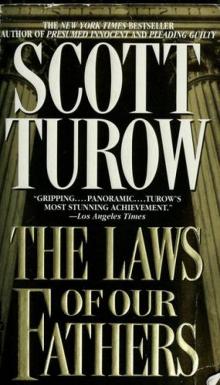 The Laws of Our Fathers
The Laws of Our Fathers Ordinary Heroes
Ordinary Heroes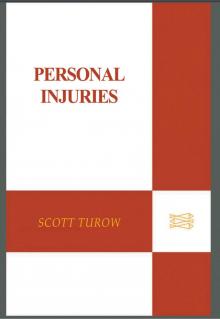 Personal Injuries
Personal Injuries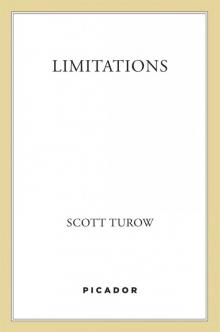 Limitations
Limitations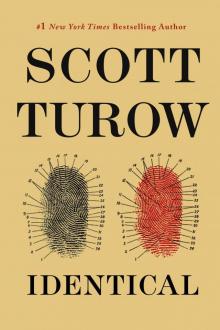 Identical
Identical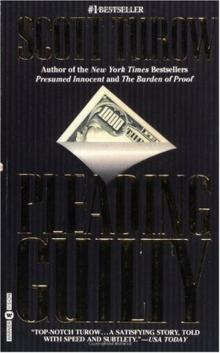 Pleading Guilty
Pleading Guilty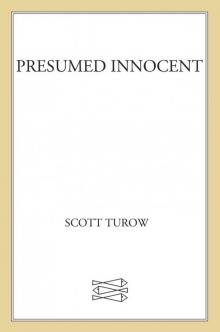 Presumed Innocent
Presumed Innocent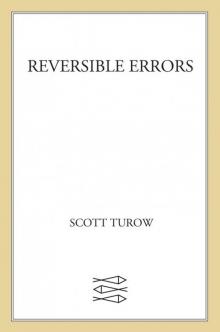 Reversible Errors
Reversible Errors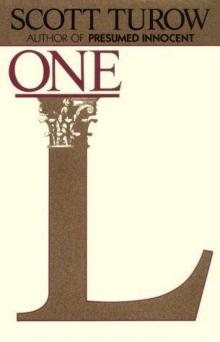 One L: The Turbulent True Story of a First Year at Harvard Law School
One L: The Turbulent True Story of a First Year at Harvard Law School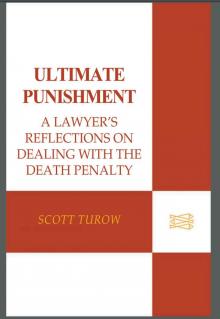 Ultimate Punishment
Ultimate Punishment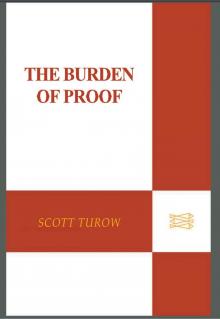 The Burden of Proof
The Burden of Proof Ordinary Heroes (2005)
Ordinary Heroes (2005)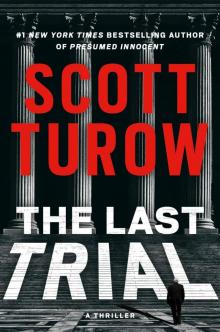 The Last Trial
The Last Trial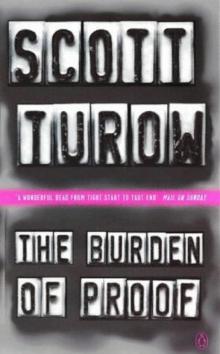 The Burden of Proof kc-2
The Burden of Proof kc-2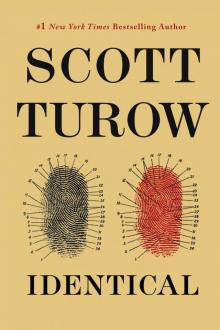 KC09 - Identical
KC09 - Identical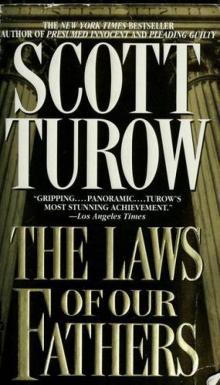 The Laws of our Fathers kc-4
The Laws of our Fathers kc-4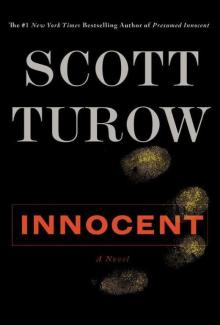 Innocent kc-8
Innocent kc-8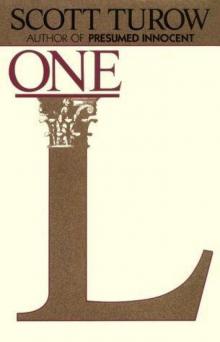 One L
One L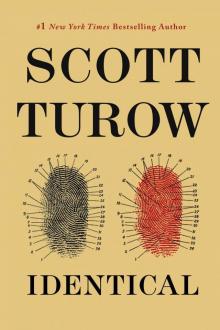 Identical kc-9
Identical kc-9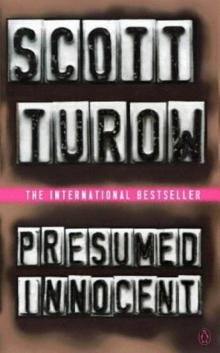 Presumed innocent kc-1
Presumed innocent kc-1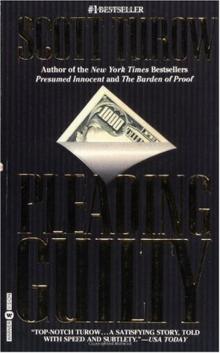 Pleading Guilty kc-3
Pleading Guilty kc-3 One L (1977)
One L (1977)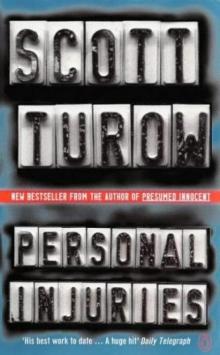 Personal injuries kc-5
Personal injuries kc-5